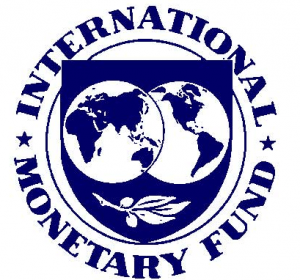Ghana, IMF reach $940m three-year credit facility agreement
 Ghana and the International Monetary Fund (IMF) have ‘reached staff-level agreement’ for a three-year Extended Credit Facility (ECF) of $940 million, the IMF announces today.
Ghana and the International Monetary Fund (IMF) have ‘reached staff-level agreement’ for a three-year Extended Credit Facility (ECF) of $940 million, the IMF announces today.
In a press statement, the IMF says its team led by Joel Toujas-Bernaté, visited Accra during February 19 to 26, 2015 to discuss the authorities’ economic and financial programme and possible financial support by the IMF.
“The mission reached staff-level agreement with the authorities, subject to approval by IMF Management and the Executive Board, on an economic program that could be supported by a three-year Extended Credit Facility (ECF) arrangement,” it says.
According to the IMF Ghana experienced three difficult years characterized by declining economic growth, increasing inflation rates, rising debt levels and financial vulnerabilities. In 2014 economic growth reached its lowest level in many years, with non-oil GDP growing at 4.1 percent, in the context of high interest rates, a fast depreciating currency, low aggregate demand and a deepening energy crisis.
“Inflation reached 17 percent, well above the central bank’s inflation target. Large fiscal deficits caused by a ballooning wage bill, poorly targeted energy subsidies and commodity price shocks pushed government debt and financing costs to very high levels, and made the economy more vulnerable to roll-over risks, despite the implementation of corrective measures in the last couple of years.
These domestic imbalances resulted in a weakened external position and pressures on the exchange rate, with net international reserves covering just a few days of import coverage in September 2014, before rebounding on account of the issuance of a Eurobond and a syndicated loan obtained by the Ghana Cocoa Board,” the IMF says.
According to the IMF, the main priority of the programme is to restore debt sustainability through a sustained fiscal consolidation, and to support growth with adequate capital spending and a reduction in financing costs. The program rests on three pillars – restraining and prioritizing public expenditure with a transparent budget process; increasing tax collection; and strengthening the effectiveness of the central bank monetary policy. The program explicitly accommodates for the expansion and the safeguard of priority spending, in particular social protection programs such as the Livelihood Empowerment Against Poverty (LEAP).
Forecasting a grim future for growth, the IMF says, “In the context of the programme, total GDP growth is expected to decline further in 2015 to 3½ percent on the back of a severe energy crisis and fiscal consolidation.”
However, it notes that growth is expected to rebound over the medium term on account of an improved macroeconomic environment and cost effective solutions to address the energy crisis.
“Inflation should decelerate substantially, while the stronger fiscal consolidation will stabilize the debt ratio to GDP. The external current account deficit is projected to decline to 7 percent of GDP in 2015, which, together with increased donor support, should contribute to start rebuilding reserves,” it adds.
The IMF team met with Dr. Kwesi Botchwey, Chairman of the National Development Planning Commission; Finance Minister Seth Terkper; Bank of Ghana Governor Kofi Wampah; other senior officials, and the donor community, it says.
By Emmanuel K. Dogbevi
